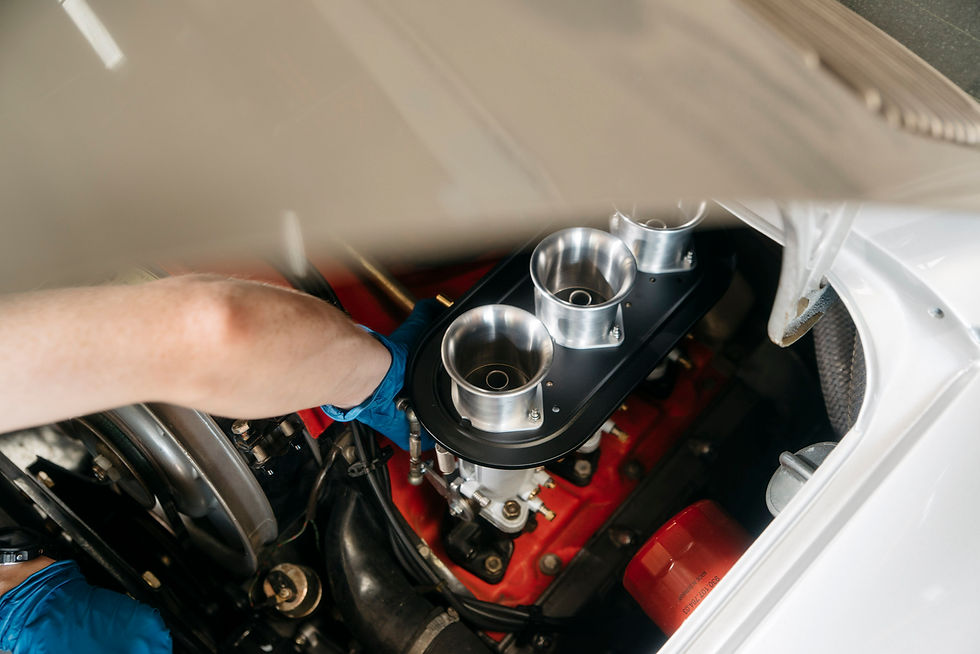Carb-rated: Weber vs PMO 🏁
- modernaircooled

- Nov 24, 2021
- 2 min read

If you’re reading this, you know: cars are more than the sum of their parts.
But sometimes you need all the pieces in order to unlock all that a car has to offer.
Take this 1973.5 Porsche 911T. Among the last of the longhoods, the customer brought this car to us with some mild, but well-built upgrades. The standard 2.4 liter motor had been enlarged to a 2.7, and the CIS had been replaced with Weber carburetors. Compared to stock, it’s a bigger, healthier motor, with more of everything.

He was looking for more performance, refinement, and drivability. The car had this upgraded motor, but you couldn’t enjoy it — the performance was choppy and inconsistent. It wasn’t slow, but it was too raucous to be livable.
We zeroed in on the carburetors, which were holding back the whole package.
Weber carbs were perfectly fine, but the formula had been perfected by PMO, a company that took Weber’s architecture and benefits, and simplified everything, while improving performance. PMO produced carburetors with fewer flaws and way less plumbing — fewer plugs and places to leak. It’s basically Weber 2.0.

Left bank: Webers, Right bank: PMOs (image for demonstration purposes only)



We took off the Webers and installed a set of PMOs, and now the 2.7 was finally getting the air and fuel to match the motor. The delivery is consistent and smooth, it revs better, and it idles better. It’s a more reliable powertrain, and a more satisfying driving experience.
With customized cars, it’s always about the entire package, and the final result is more than sum of its parts. With this 1973.5 Porsche 911T, all it took was one key change to make a profound difference.







Comments